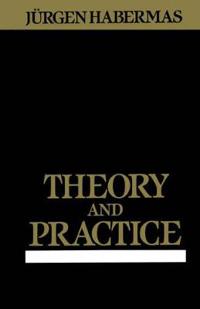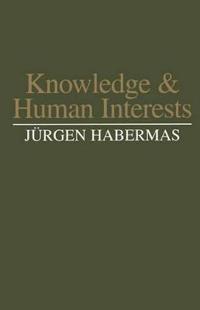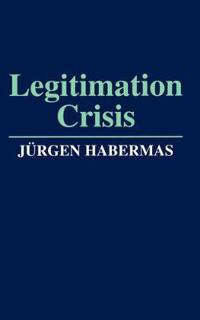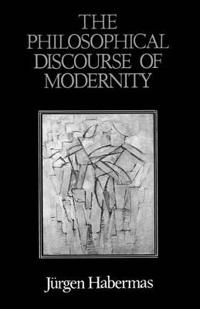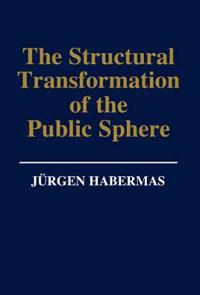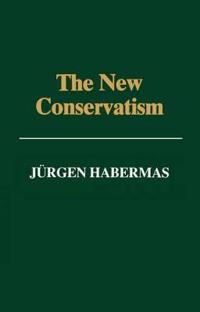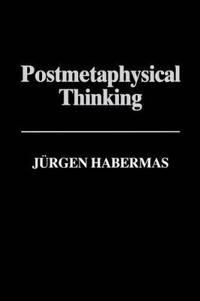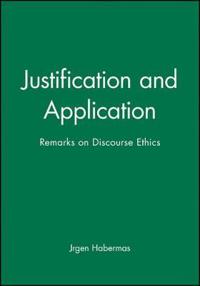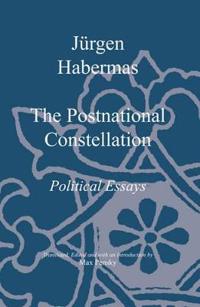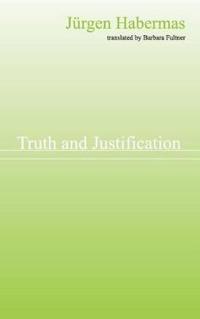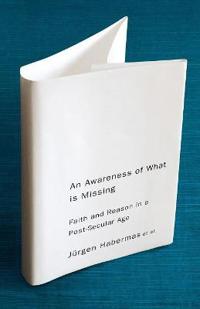The Theory of Communicative Action: Reason and the Rationalization of Society (Häftad)
avJurgen Habermas
ISBN: 9780745603865 - UTGIVEN: 198606Here, for the first time in English, is volume one of Jurgen Habermasa s long--awaited magnum opus: The Theory of Communicative Action. This pathbreaking work is guided by three interrelated concerns: (1) to develop a concept of communicative rationality that is no longer tied to the subjective and [...]
Theory and Practice (Häftad)
avJurgen Habermas
ISBN: 9780745603872 - UTGIVEN: 198606Theory and Practice is one of Habermasa s major works and is widely recognized as a classic in contemporary and social and political theory. Through a series of highly original historical studies, Habermas re--examines the relations between philosophy, science and politics. Beginning with the classi[...]
Knowledge and human interests (Pocket)
avJurgen Habermas
ISBN: 9780745604596 - UTGIVEN: 198606Habermas describes Knowledge and Human Interests as an attempt to reconstruct the prehistory of modern positivism with the intention of analysing the connections between knowledge and human interests.[...]
Legitimation crisis (Pocket)
avJurgen Habermas
ISBN: 9780745606095 - UTGIVEN: 198808In this enormously influential book, Jurgen Habermas examines the deep tensions and crisis tendencies which underlie the development of contemporary Western societies and develops a powerful analysis of the legitimation problems faced by modern states.[...]
The Theory of Communicative Action: Lifeworld and Systems, a Critique of Functionalist Reason (Häftad)
avJurgen Habermas
ISBN: 9780745607702 - UTGIVEN: 199101Offers a systematic reconstruction of the theoretical foundations and framework of critical social theory.[...]
Philosophical discourse of modernity (Pocket)
avJurgen Habermas
ISBN: 9780745608303 - UTGIVEN: 199004Examines the theoretical and philosophical contours of the modern era. The book traces the contemporary critiques of modernity back to their philosophical origins in the work of Marx, Nietzsche, Heidegger and others.[...]
On the Logic of the Social Sciences (Häftad)
avJurgen Habermas
ISBN: 9780745608624 - UTGIVEN: 199009In this wide--ranging work, now available in paperback, Habermas presents his views on the nature of the social sciences and their distinctive methodology and concerns. He examines, among other things, the traditional division between the natural sciences and the social sciences; the characteristics[...]
The Structural Transformation of the Public Sphere: Inquiry into a Category (Häftad)
avJurgen Habermas
ISBN: 9780745610771 - UTGIVEN: 199207In this work, Habermas retraces the emergence and development of the bourgeois public sphere, focusing on Europe in the early modern period. He examines the writing of political theorists and the specific institutions and social forms in which the public sphere was realized.[...]
Moral consciousness and communicative action (Pocket)
avJurgen Habermas
ISBN: 9780745611044 - UTGIVEN: 1992-12This book attempts to confront a variety of controversial problems at the centre of current debates in philosophy and social and political theory. The author develops his views on a range of moral and ethical issues, drawing on his theory of communicative action.[...]
Between Facts and Norms (Inbunden)
avJurgen Habermas
ISBN: 9780745612294 - UTGIVEN: 199607This is Habermasa s long awaited work on law, democracy and the modern constitutional state in which he develops his own account of the nature of law and democracy.[...]
The New Conservatism (Pocket)
avJurgen Habermas
ISBN: 9780745614113 - UTGIVEN: 1995-01Jurgen Habermas is well known for his scholarly writings on the theoretical foundations of the human sciences. The New Conservatism brings to light another side of Habermasa s work, showing him to be an incisive commentator on a wide range of contemporary themes. The 1980s have been a crucial decade[...]
Post-Metaphysical Thinking (Pocket)
avJurgen Habermas
ISBN: 9780745614120 - UTGIVEN: 1995-01In this new collection of recent essays, Habermas takes up and pursues the line of analysis begun in The Philosophical Discourse of Modernity. He begins by outlining the sources and central themes of twentieth-century philosophy, and the range of current debates. He then examines a number of key con[...]
Justification and Application (Häftad)
avJurgen Habermas
ISBN: 9780745616391 - UTGIVEN: 1995-06This volume presents Habermas's most recent contributions to ethical theory, expanding and clarifying his controversial theory of discourse ethics. Responding to criticisms of his theory, Habermas defends the claim of discourse ethics to a central position in contemporary moral philosophy. He expla[...]
Between facts and norms - contributions to a discourse theory of law and de (Pocket)
avJurgen Habermas
ISBN: 9780745620114 - UTGIVEN: 199708aeo This is Habermasa s long--awaited work on law and democracy. aeo It develops a distinctive account of the nature of law and an original concept of democracy. aeo As one of Habermasa s most important works, it will be recognized as a major contribution to current debates in social theory, polit[...]
Postnational constellation (Pocket)
avJurgen Habermas
ISBN: 9780745623528 - UTGIVEN: 200012Does a global economy render the traditional nation-state obsolete? Does globalization threaten democratic life, or offer it new forms of expression? The German philosopher and social theorist Jurgen Habermas addresses these and other questions in this work.[...]
Truth and Justification (Inbunden)
avJurgen Habermas
ISBN: 9780745624242 - UTGIVEN: 200311In this important book, Jurgen Habermas takes up certain fundamental questions of philosophy.
Inclusion of the other - studies in political theory (Pocket)
avJurgen Habermas
ISBN: 9780745630465 - UTGIVEN: 2002-09-13The Inclusion of the Other contains Habermasa s most recent work in political theory and political philosophy. Here Habermas picks up some of the central themes of Between Facts and Norms and elaborates them in relation to current political debates.[...]
The Divided West (Häftad)
avJurgen Habermas, Ciaran Cronin
ISBN: 9780745635194 - UTGIVEN: 200609Make no mistake, the normative authority of the United States of America lies in ruins. Such is the judgment of the most influential thinker in Europe today reflecting on the political repercussions of the war in Iraq.[...]
Between Naturalism and Religion: Philosophical Essays (Inbunden)
avJurgen Habermas
ISBN: 9780745638249 - UTGIVEN: 2008-06-30Between Naturalism and Religion: Philosophical Essays (Häftad)
avJurgen Habermas
ISBN: 9780745638256 - UTGIVEN: 200805Two countervailing trends mark the intellectual tenor of our age the spread of naturalistic worldviews and religious orthodoxies. Advances in biogenetics, brain research, and robotics are clearing the way for the penetration of an objective scientific self-understanding of persons into everyday life[...]
An Awareness of What is Missing: Faith and Reason in a Post-secular Age (Inbunden)
avJurgen Habermas
ISBN: 9780745647203 - UTGIVEN: 2010-02-28An Awareness of What Is Missing: Faith and Reason in a Post-Secular Age (Häftad)
avJurgen Habermas
ISBN: 9780745647210 - UTGIVEN: 201003In his recent writings on religion and secularization, Habermas has challenged reason to clarify its relation to religious experience and to engage religions in a constructive dialogue.[...]
The Crisis of the European Union: A Response (Häftad)
avJurgen Habermas
ISBN: 9780745662435 - UTGIVEN: 2013-08-31


